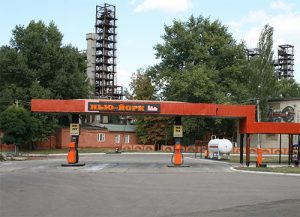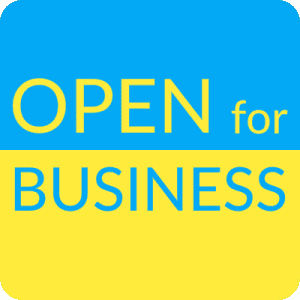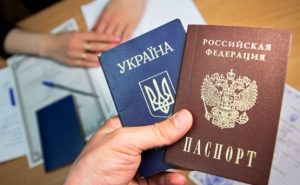
The Verkhovna Rada Committee on State Power, Local Self-Government, Regional Development and Urban Planning has supported the renaming of Novhorodske, Bakhmutsky district, Donetsk region, to New York, said Deputy Head of the Committee Oleksandr Kachura (Servant of the People faction).
“Today, at a meeting of the committee of state power and local self-government, it was decided to rename the urban-type settlement Novhorodske, Bakhmutsky district of Donetsk region, to New York,” the deputy wrote on the Telegram channel.
He also noted that the decision was made “on the basis of a motion from Donetsk military-civil administration: the appeal says that this is the historical name of the settlement, which was used until 1951.”
Internal and external debt of Ukraine in 2009-2020.

SSC of Ukraine

Dragon Capital plans in 2021 to return to the rates of investments that were before the pandemic, Dragon Capital Head Tomas Fiala said.
“In the first half of the year, we plan to close five deals together with co-investors and Western funds for about $200 million. We hope to close them in the first half of the year, so we will return to the rates of investments that were before coronavirus [COVID-19],” he said at the EBA Global Outlook meeting hosted by the European Business Association on Thursday.

Open4Business is a platform created to help foreign businesses to search for opportunities and expand to Ukrainian market.
The platform and related organizations provide a holistic set of services needed to successfully penetrate the Ukrainian starting from establishing foreign trade relations with local companies and up to establishing a subsidiary or acquiring a company in Ukraine.
You are welcome to contact:
info@open4business.com.ua
tel./fax: +38(067)970-52-59
The List of Main Services:
– Market information and market intelligence
– Searching trade partners and organizing fact finding trips
– Governmental relations
– PR campaigns
– Full range of M&A services
– Production outsourcing project management
– Legal advisory services including licencing and certification, etc. (together with associated companies).

Members of parliament (MPs) from the Servant of the People party intend to reintegrate Ukrainians with Russian passports from Donbas and Crimea, as well as Ukrainians working in Russia, in bills on dual citizenship.
“The main goal of our bill is to reintegrate our Ukrainians from the east and from Crimea, as well as our citizens who have Russian passports and understand the current situation in relations with the Russian Federation. They received these passports in different ways. Someone, like in Crimea, was forced to get a passport in order to work in Russia. There are estimated from 1 to 2 million of these people. We want to pull them out and give them the opportunity to ‘declare’ and live peacefully with these passports so that they are not persona non grata,” MP Oleh Dunda (Servant of the People faction) said at a press conference at the Interfax-Ukraine news agency on Tuesday.
At the same time, he said, the bill will help “shed light on our political class and their foreign passports.”
“One of those who used informally dual citizenship was our political class, who received passports of other countries and used them … as a tool where they hide money. And people did not know about this,” he said.
He added the bill “will put a barrier to the aggressor country in gaining access to government posts.”
Dunda also noted that the bill will eliminate many gaps in the legislative field of Ukraine, allowing civil servants to have citizenship of other countries.
“For some of our high-ranking officials, a ban has been established to have a passport of another state. But the same laws have not established anywhere that if they acquire foreign citizenship while working in the civil service, they are dismissed,” the MP said.
As reported, on January 25, MPs from the Servant of the People faction registered three bills that would allow Ukrainians to have dual citizenship.
In bill No. 4640, the authors propose to amend the law on citizenship, which provides citizens of Ukraine with the right to obtain citizenship (allegiance) of a foreign state without losing the citizenship of Ukraine.
The proposed changes also allow foreigners to obtain Ukrainian citizenship without renouncing the citizenship of their country.
In addition, it is proposed to introduce a declaration of the presence (absence) of foreign citizenship (allegiance) and keeping records of Ukrainian citizens who have citizenship of other states.
The bill also proposes to provide for the submission of a declaration of absence of foreign citizenship by persons who apply for election to elective positions or to the civil service, to serve in local government bodies, to serve in law enforcement agencies.
The explanatory note to the draft law says that one of the important innovations is the introduction of the concept of “aggressor state.”